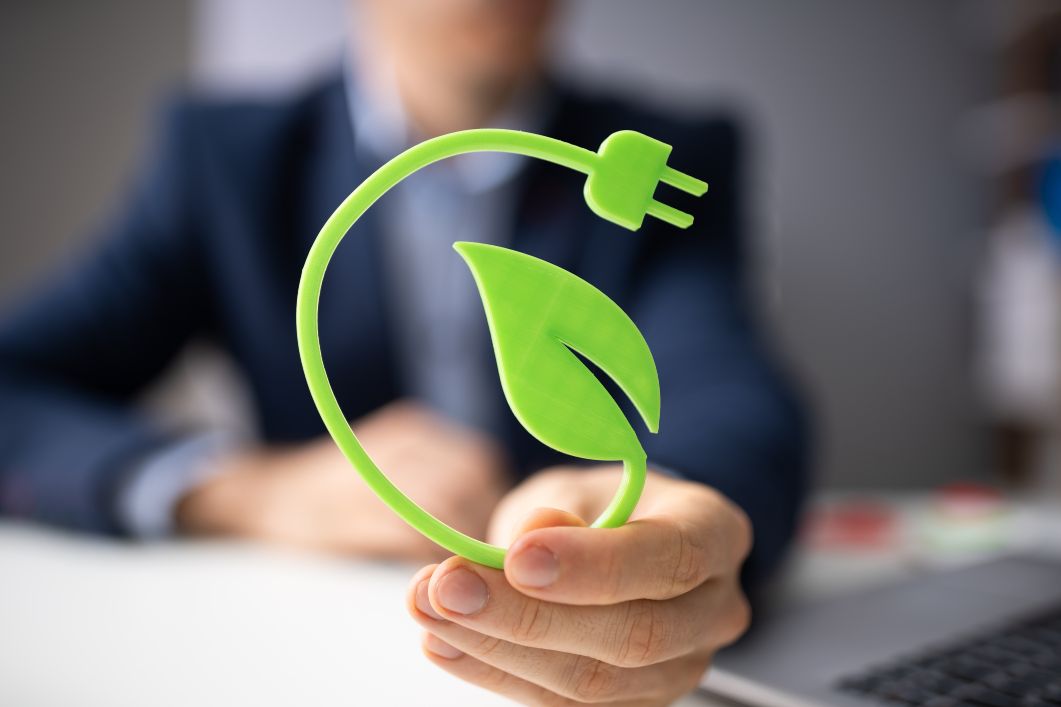Renewable energy adoption increased 6% in 2021. The International Energy Agency, or IEA, predicts it will increase a further 8% this year and in 2023. This transition is happening much quicker than expected and it is partly driven by the global energy crisis.
However, The Paris Climate Agreement, involving 192 countries and the European Union, also triggered significant change. Its long-term goal is to substantially reduce global greenhouse gas emissions by moving away from fossil fuels towards renewable energy alternatives. In response, governments are enacting stricter legislation to curb carbon emission levels.
How Does This Affect Business?
Undoubtedly, the shift towards sustainable renewable energy is happening now and already affecting business in many ways. Fortune 500 companies in over 23 countries have already pledged to reduce emissions drastically.
The move towards sustainable renewable energy is reshaping economies and business. Companies are redirecting funds towards new development and creating new global value chains. Clients are also choosing businesses that embrace renewables.
In short, the sooner business begins its move towards its sustainable renewable energy, the better. By exploring what’s available and what is easily within reach, companies can estimate costs, plan for change, and identify viable options that best suit their company’s goals.
Consequently, technology can help them anticipate climate policy requirements now and easily meets them in the near and long-term.
What Renewable Energy Options are Available to Business?
According to IEA, Solar photovoltaic power accounts for approximately 60% of global renewable power growth this year, followed by wind and hydropower.
However, these are certainly not the only sustainable, renewable options available to business. Geothermal power, clean hydrogen, nuclear, and biomass fuels also offer great potential.
However, companies may not need such radical change. In some cases, switching to another energy distribution model could serve them better. Energy as a service, peer to peer trading, and pay as you go models can offer cost savings and reduce emissions.
Can Business Reduce Emissions in Other Ways?
Absolutely. Companies may reduce emissions by targeting specific areas within their business. This includes finetuning their energy production, transmission, storage, efficiency, and consumption.
Business can also improve building systems, electrify industrial processes, utilise advanced controls, and advance their software and communications. Innovative technologies can play an important role in these changes. Plus, novel technologies can help business predict and limit the impact of climate change.
Artificial intelligence, the Internet of Things, Augmented Reality, and Virtual Reality all offer opportunities to reduce carbon emissions and build climate resilience. Fortunately, many governments now offer strong fiscal support to decrease company outlay for low-carbon innovation.
The move towards sustainable renewably energy also has the potential to reveal amazing new opportunities for some companies. For instance, support, maintenance, and installation of renewable energy plants will create job growth.
Nonetheless, it can be difficult for companies to determine which innovations will serve their business well now and as they transition towards renewables. It is a massive, diverse industry, growing at an incredible rate.
Some technologies may not suit business needs while others may be impractical at this point. However, many technologies already exist that provide beneficial change and cost reductions. Additionally, many promising innovations are in the pipeline that could disrupt the status quo and benefit your business.
Achieving Sustainable Renewable Energy Goals
Regrettably, many companies believe disruptive technologies are out of their reach. This is not the case. Business can access innovation, even if they aren’t a Fortune 500 company.
Research and innovation are key to active participation in sustainable renewable energy growth. Even if companies do not have a massive R&D budget or sufficient expertise and talent needed to achieve their goals, they can partner to tap into cutting-edge innovation.
EarlyBirds offers Subject Matter Experts and an expansive marketplace of new and disruptive technologies. We also offer unique programs for ad hoc or supplementary needs, as well as ongoing transformational support.
These resources can help your organisation create a roadmap to achieve sustainable, renewable energy goals, spearhead organisational change, and fast-track R&D.
EarlyBirds Innovation Ecosystem
The EarlyBirds Innovation Ecosystem is a Business-to-Business portal that connects leaders or influencers in an organisation with new and disruptive technologies.
The Ecosystem has a data pool of over 4 million global innovations that may already address your business challenges. Alternatively, companies can list challenges and request solutions from innovators.
EarlyBirds Explorer Program
The Explorer Program is tailored towards businesses who need innovation as a service to supplement existing innovation programs, or to conduct innovation projects when required.
EarlyBirds Challenger Program
The Challenger Program focuses on a single business or technical challenge. It looks for the most relevant innovators that meet business, technical, commercial, and business risk requirements.
The program is run by an EarlyBirds Subject Matter Expert who collects requirements. The SME then searches the data pool to identify and curate options for further evaluation. The most suitable option is chosen and SME drafts a roadmap of next steps, POC, trial, or implementation.
*****
EarlyBirds can provide direction and expertise if your organisation plans to adopt sustainable renewable energy. We’re highly experienced in finding innovative solutions and connecting business to disruptive technology to reduce emissions.
Register at https://earlybirds.io/, or contact us to discuss your needs. We can help you connect with innovation to achieve your sustainable renewable energy goals.
